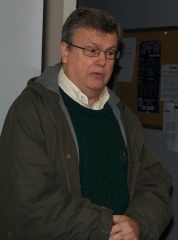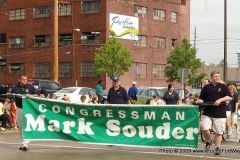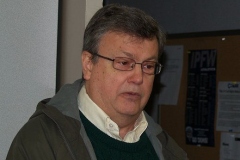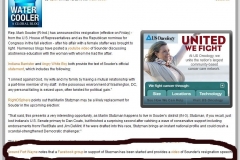A column first published by the KPC Media Group in the News-Sun (Noble & LaGrange Counties), the Evening Star (DeKalb County), and the Herald-Republican (Steuben County), reprinted here with the permission of Rep. Mark Souder:
Afghanistan: Will the McChrystal plan work?
by Mark Souder – January 8, 2010This column was first published by the KPC Media Group in the News-Sun (Noble & LaGrange Counties), the Evening Star (DeKalb County), and the Herald-Republican (Steuben County).
THIS IS THE THIRD of several columns by U.S. Rep. Mark Souder following his recent trip to Afghanistan.
General McChrystal was chosen by President Obama to draft a new Afghanistan strategy. At the core is a fundamental strategy shift from a war to a “counter-insurgency” strategy.
You might ask: Why, if this is a good strategy, was it not done before? The answer is a bit complex. Here are a few basics:
- Phase one actually worked. Afghanistan was the launching pad for 9/11. Now Osama and friends are either dead, in caves or elsewhere. And, there have been zero successful attacks on American soil. Being the attacker rather than the defender is like the difference between being a critic and decision maker. Lobbing a few bombs and running is a lot simpler than trying to build things and protect everywhere.
- After initial successes in Afghanistan, America diverted its main effort to Iraq.
- Iraq-with the Shia, Sunni and Kurds-is a stroll in the park compared to Afghanistan. There are as many tribes in conflict per major valley in Afghanistan as there is in all of Iraq. The Hindu Kush mountains average 14,000 feet.
- Iraq enabled America to demonstrate our latest “shock and awe” technology. It made an impression. For example, Libya decided not to be next.
- Iran paused in its nuclear development, though now it seems back to its “let’s have some tea with the West while we get back to building a bomb.”
- Our military can defeat anyone. Few are stupid enough to try and those that do can’t last for more than a few days.
Displacing the enemy is comparatively easy. It’s the “hold” part of the strategy that is difficult. This was not unknown to former Defense Secretary Rumsfeld or others. Secretary of State Colin Powell led the internal debate with the basic thesis: “We break it, we own it.”
Quite honestly, I agreed with Powell and said so at the time. I voted with President Bush (he was commander-in-chief, not me). Both arguments — knock out the Afghan threat, move to Iraq, and then worry about it versus stabilize Afghanistan, then move to Iraq — had merit.
For years, I have spoken to the Army War College students at Carlisle stressing the importance of insurgency training versus just traditional war. After all, that’s what we did against the British.
But fighting insurgencies is hard. It is why General McChrystal has called for a surge. Now, the future of Afghanistan is going to come down to the battle for control of Kandahar.






